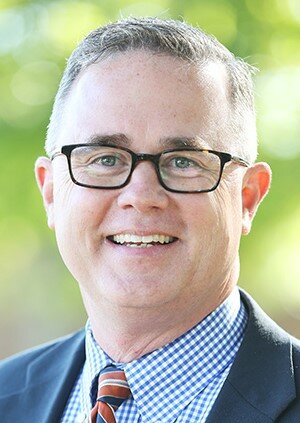OPINION: Confused language indicates confused living
By Todd E. Brady
Columnist
A growing confusion exists concerning the misapplication of personal pronouns.
When I was in elementary school, I learned that an English pronoun (I, you, he, she, it, we, they, me, him, her, us, them) showed contrasts between different nouns. A noun, I learned, is a person, place, or thing. I learned that a pronoun in a sentence correlated to a noun that was present in another sentence nearby. (I also learned that I should not end a sentence with a preposition, and with the preceding sentence notwithstanding, I typically observe that rule.)
At Jackson Central Merry High school, Mrs. Savage taught me that in the Spanish language, nouns had a male, female, or neuter case and that pronouns (el, ella, su, sua, etc.) were to correspond to the nouns which they identified. Especially in that class, you made sure you got your pronouns right—and right meant correct correspondence to the right noun.
At Union University, Mrs. Bentley taught Written Composition and ensured that the pronouns which I used related correctly to certain nouns.
At Southwestern Baptist Theological Seminary in Fort Worth, TX, my Greek professor taught me the appropriate pronouns to use in translating the language. I still remember looking at hundreds of flash cards and memorizing word after word to make sure I got it right.
My doctoral supervisor at The Southern Baptist Theological Seminary in Louisville, KY and I mailed my dissertation manuscripts back and forth. (Yes, this was through the United States Post Office… before emailed documents.). My returned manuscripts were often covered in red marks where corrections or revisions were needed. The expectation prevailed that the pronouns used corresponded correctly to the appropriate nouns. Not only were the pronouns to correspond correctly to appropriate nouns; they were to correspond correctly to reality. I doubt my supervisor would have cared if I felt like using a different pronoun. He expected me to use a particular one…the correct one. He would not have accepted an incorrect pronoun. Had I used the pronouns I might have felt like using rather than the correct ones, I probably would not have passed.
Pronouns are not a matter of personal preference, but ontological reality.
Language helps us communicate reality rightly. Nouns, verbs, prepositions, pronouns, and the entire system and structure of language (grammar, syntax, morphology, semantics, etc.) helps us communicate accurately and well. Our desire in using language is to rightly reflect reality. When my children ask “Where’s mommy?’, they are wanting to know correct information. When I say “She went to the store,” they know exactly who I am talking about because “she” refers to the reality of “Mommy.” If they asked me “Where’s mommy?”, and I replied “They went to the store,” they would be confused and would want to know who else went with her.
When language is confusing, it is often spoken by confused people who have a confused understanding of reality.
Readers of this paper take in words in an effort to understand the reality of news and events. Readers of the sports page want to know who won and who lost a particular game. They want to know the reality of how particular players did particular things. Readers want to trust their writers to communicate reality correctly.
Those who read opinion columns may not agree with what the writer says, but the reader reads a column in order to understand a writer’s particular thoughts about a particular situation. He (or she) may disagree with the opinion of the writer, but he (or she) is trusting that the writer will make sense and communicate himself (or herself) in a way that is understandable.
Today, we are seeing some use pronouns not in the way they were intended, but in a way which they prefer—even though the pronouns they desire to use do not reflect reality. For some, even existing pronouns are not acceptable. They have made up non-sensical pronouns like zi, zir, xe, and xem.
You can tell a lot about a people by the language they use—looking at the words they choose and examining how they put words together.
Confusion with words often mirrors confusion in life.
Todd E. Brady is vice president for university ministries at Union University. Write to him at 1050 Union University Drive, Jackson TN 38305.






